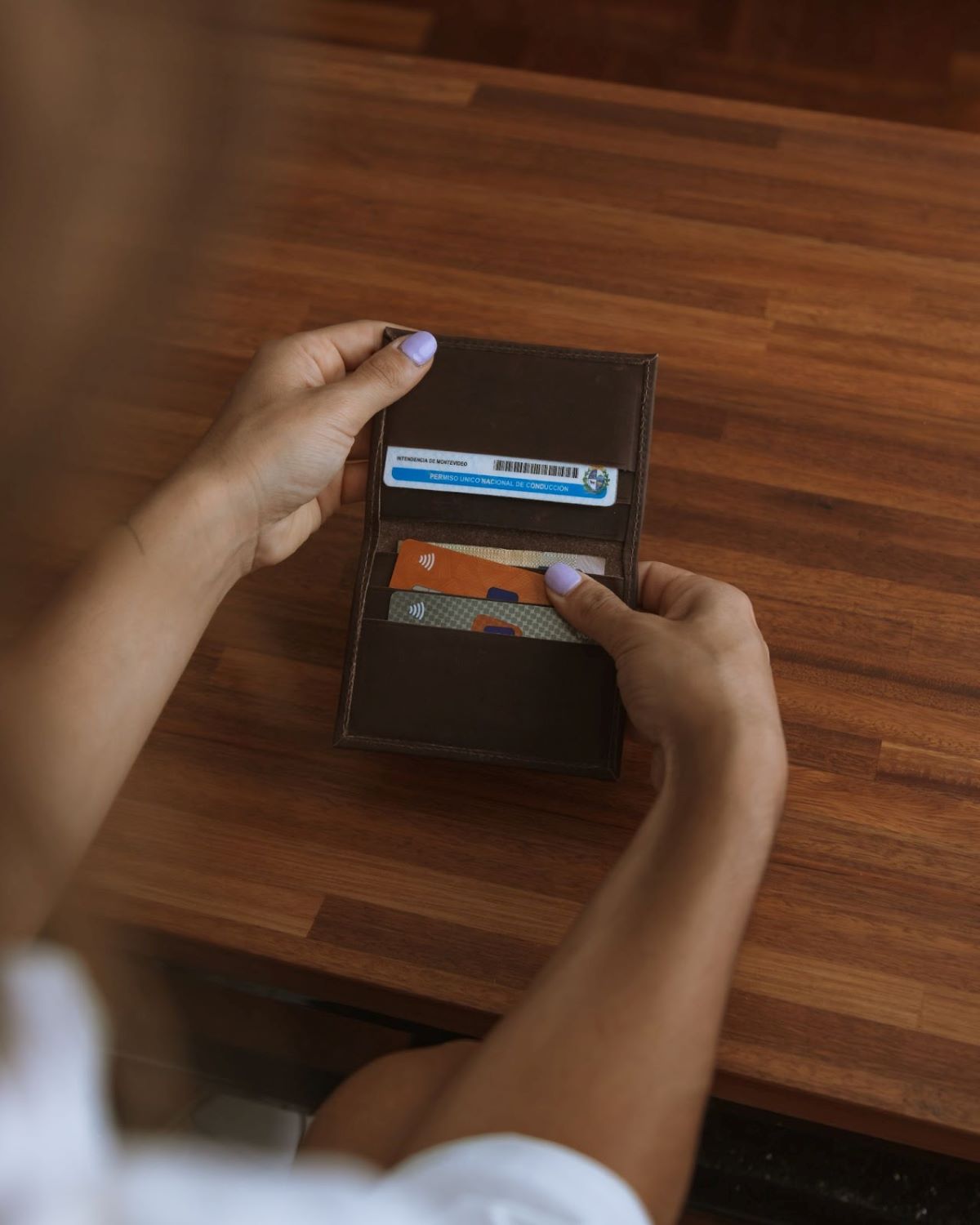

Finance
How To Add My Rent To My Credit Report
Published: October 20, 2023
Learn how to add your rent payments to your credit report and improve your financial standing. Achieve better credit scores and gain more trust in your financial abilities with this practical guide on finance.
(Many of the links in this article redirect to a specific reviewed product. Your purchase of these products through affiliate links helps to generate commission for LiveWell, at no extra cost. Learn more)
Table of Contents
- Introduction
- Step 1: Understand the Benefits of Adding Rent to Your Credit Report
- Step 2: Verify Eligibility for Rent Reporting
- Step 3: Choose a Rent Reporting Service
- Step 4: Set Up Your Rent Reporting Account
- Step 5: Connect Your Rent Payment Information
- Step 6: Monitor and Verify Rent Reporting
- Step 7: Utilize the Boost to Your Credit Score
- Conclusion
Introduction
Building a strong credit history is crucial for financial success. Your credit score plays a key role in determining your eligibility for loans, credit cards, and even housing rentals. Traditionally, credit reports primarily consisted of information related to financial transactions, such as credit card payments and loan repayments. However, thanks to the introduction of rent reporting services, you can now add your rent payments to your credit report and give your score a well-deserved boost.
Adding your rent payments to your credit report has numerous benefits. First and foremost, it allows you to establish a positive payment history. Timely rent payments demonstrate your reliability and financial responsibility to potential lenders, making it easier for you to qualify for favorable loan terms and interest rates in the future.
Additionally, including rent payments in your credit report helps to increase the depth and variety of your credit profile. Lenders value a diverse mix of credit types, and adding rent to your credit report provides an additional data point that showcases your ability to handle different financial obligations.
Furthermore, incorporating your rent payments into your credit report can be particularly advantageous if you have a limited credit history or no credit history at all. By demonstrating a consistent and on-time payment record, you can start establishing credit and building a solid foundation for your financial future.
Now that you understand the benefits of adding rent to your credit report, let’s explore the steps you need to follow to successfully incorporate your rent payments and reap the rewards of a boosted credit score.
Step 1: Understand the Benefits of Adding Rent to Your Credit Report
Before diving into the process of adding rent to your credit report, it’s important to understand the benefits associated with this action.
First and foremost, adding your rent payments to your credit report can help improve your credit score. Your credit score is a numerical representation of your creditworthiness, and it is used by lenders to evaluate your financial trustworthiness. By adding your rent payments, you are providing a positive payment history that demonstrates your ability to meet financial obligations. This can result in a higher credit score, which in turn can give you access to better interest rates and borrowing options.
In addition to boosting your credit score, including rent in your credit report adds more depth and diversity to your credit profile. Lenders want to see a well-rounded credit history that includes various types of credit, such as credit cards, loans, and now, rent payments. This shows that you can handle different financial responsibilities and gives lenders a more complete picture of your financial habits.
Another benefit of adding rent to your credit report is the potential to establish credit if you have a limited credit history or no credit history at all. Many individuals, such as recent college graduates or new immigrants, may not have had the opportunity to build credit yet. By adding rent payments, you are starting the process of building a credit history and showing future lenders that you are capable of making consistent and on-time payments.
Lastly, adding rent payments to your credit report can also be helpful if you are looking to rent a new property in the future. Landlords and property managers often conduct credit checks to assess the reliability of potential tenants. By having a track record of on-time rent payments visible on your credit report, you can enhance your chances of securing your desired rental property.
Understanding the benefits of adding rent to your credit report is the first step in taking advantage of this opportunity. With a clear picture of how it can improve your credit score, add depth to your credit profile, establish credit, and enhance your rental prospects, you can proceed confidently to the next steps of the process.
Step 2: Verify Eligibility for Rent Reporting
Before you can proceed with adding your rent to your credit report, it’s important to verify your eligibility for rent reporting services. While many individuals can benefit from this option, there are certain factors to consider.
Firstly, check if your landlord or property management company offers rent reporting services. Some landlords may have partnerships with specific rent reporting companies, making it easier for you to begin the process. Reach out to your landlord or property manager and inquire about their rent reporting options.
If your current landlord does not offer rent reporting services, don’t worry. There are several independent rent reporting services available that you can utilize. These third-party services allow you to report your rent payments directly to credit bureaus like Experian, TransUnion, or Equifax.
Secondly, ensure that your rent payments are consistently documented. Rent reporting services require a reliable and consistent method of tracking and verifying your payments. If you primarily make cash payments or have informal arrangements with your landlord, it may be more challenging to provide the necessary documentation for rent reporting. Consider transitioning to electronic payments or seeking a formal rent receipt system to streamline the process.
It’s also important to note that not all rent payment types may be eligible for reporting. Some rent reporting services may only accept electronic payments made through specific platforms, such as online banking or mobile apps. Verify with the rent reporting service provider and ensure that your payment method aligns with their reporting requirements.
Lastly, keep in mind that rent reporting services typically have a monthly or annual fee. These fees can vary depending on the service provider and the additional features offered. Take the time to research and compare different rent reporting options to determine which one suits your needs and budget.
Verifying your eligibility for rent reporting services is an essential step in the process. By confirming if your landlord or property management company offers rent reporting or exploring independent rent reporting services, ensuring consistent documentation of rent payments, and understanding any associated fees, you can proceed confidently to the next step of adding rent to your credit report.
Step 3: Choose a Rent Reporting Service
After verifying your eligibility for rent reporting, the next step is to choose a rent reporting service that aligns with your needs and preferences. There are several factors to consider when making this decision.
Firstly, research and compare different rent reporting services in the market. Look for reputable and well-established companies that have a track record of providing accurate and reliable rent reporting services. Read reviews and testimonials from other users to get a sense of their experience with the service.
Consider the reporting options offered by each service. Some rent reporting services report rent payments only to one credit bureau, while others may report to multiple bureaus. Reporting to multiple bureaus can increase your chances of improving your credit score as it reaches a wider audience of potential lenders.
Another important factor to consider is the ease of use and convenience of the rent reporting service. Look for a service that offers user-friendly interfaces and seamless integration with popular payment platforms. This will make it easier for you to connect your rent payment information and ensure accurate reporting.
Additionally, compare the features and additional services offered by each rent reporting service. Some services provide tools for credit monitoring and identity theft protection, which can be valuable in maintaining a healthy credit profile. Others may offer educational resources and personalized credit improvement recommendations.
Budget is also an important consideration. Some rent reporting services charge a monthly or annual fee for their services, while others may offer free options with limited features. Evaluate your budget and determine the value you place on the additional features provided by each service.
Lastly, consider the customer support provided by the rent reporting service. Look for services that offer responsive and helpful customer service agents who can assist with any questions or issues you may encounter during the rent reporting process.
By carefully considering and comparing these factors, you can choose a rent reporting service that best suits your needs and preferences. Remember to take your time and make an informed decision, as this service will play a significant role in adding your rent to your credit report and improving your creditworthiness.
Step 4: Set Up Your Rent Reporting Account
Once you have selected a rent reporting service, it’s time to set up your rent reporting account. This step involves creating an account with the chosen service provider and providing the necessary information to initiate the rent reporting process.
Start by visiting the website of the rent reporting service you have chosen. Look for a “Sign Up” or “Create an Account” option and click on it to begin the registration process. You will likely be prompted to provide personal information, such as your name, contact details, and social security number, to verify your identity and ensure accurate reporting.
During the account setup, you may also need to provide information about your rental property, including the address, your landlord’s contact details, and the terms of your lease agreement. This information helps the rent reporting service connect your rent payments to your credit report accurately.
Some rent reporting services may require additional documentation to verify your rent payments, such as copies of your lease agreement or monthly rent receipts. Make sure to have these documents handy to streamline the setup process.
Once you have provided all the necessary information, review the terms and conditions of the rent reporting service and agree to them. It’s essential to understand the agreements and any associated fees or obligations before proceeding. If you have any questions or concerns, reach out to the customer support of the rent reporting service for clarification.
After completing the account setup, you will typically receive a confirmation email or message from the rent reporting service. This communication will provide you with further instructions on how to connect your rent payment information to the service and start the reporting process.
Take the time to familiarize yourself with the rent reporting service’s user interface and any additional features provided. Explore the platform and check if there are any settings or preferences you can adjust to customize your rent reporting experience.
Setting up your rent reporting account is an important step in adding your rent to your credit report. By carefully providing accurate information and understanding the terms and conditions of the service, you can ensure a smooth and successful integration of your rent payments into your credit history.
Step 5: Connect Your Rent Payment Information
After setting up your rent reporting account, it’s time to connect your rent payment information to the rent reporting service. This step involves providing the necessary details and documentation to ensure accurate and timely reporting of your rent payments.
Firstly, ensure that you have a record of your rent payments. Gather your rent receipts, bank statements, or any other documents that show proof of your monthly rental payments. It’s important to have this documentation readily available to ensure accurate reporting.
Next, check with the rent reporting service on the specific method to connect your rent payment information. Some services may require you to link your online bank account, while others may have a direct integration with popular payment platforms such as PayPal or Venmo. Follow the instructions provided by the rent reporting service to connect your rent payment information securely.
If your rent payments are made with checks or money orders, you may need to manually input the payment details into the rent reporting service’s system. Be diligent in entering the accurate payment amounts, dates, and any additional information required. Double-check for any typos or errors to ensure the information is reported correctly.
For rent payments made through electronic methods, ensure that the payment platforms you use are supported by the rent reporting service. The service may require you to grant permission or provide access to retrieve your payment information from the platform. Follow the necessary steps to authorize the rent reporting service to access your payment data.
During the connection process, you may be prompted to set up automatic reporting. Enabling this feature ensures that your rent payments are reported on time consistently. Automatic reporting eliminates the need for manual input every month and provides a seamless experience.
Once you have connected your rent payment information, it’s crucial to periodically review your rent reporting account to ensure accuracy. Confirm that your rent payments are being recorded and reported correctly by checking your account statements or credit reports regularly. If you notice any discrepancies or missing information, reach out to the rent reporting service’s customer support for assistance.
By connecting your rent payment information to the rent reporting service, you are taking the necessary steps to ensure that your rent payments are accurately reflected in your credit history. This helps build a strong credit profile and increases your chances of improving your credit score.
Step 6: Monitor and Verify Rent Reporting
Once you have connected your rent payment information to the rent reporting service, it’s essential to monitor and verify that your rent payments are being accurately reported to the credit bureaus. This step ensures that your efforts to add your rent to your credit report are yielding the desired results.
Start by regularly checking your rent reporting account and reviewing your payment history. Verify that each rent payment is recorded accurately, including the amount, date, and any additional details. This helps to ensure that your credit report reflects your consistent and timely rent payments, which positively impacts your creditworthiness.
Additionally, keep an eye on your credit reports from the major credit bureaus, such as Experian, TransUnion, and Equifax. The rent reporting service should provide updates on when your rent payments will be reflected in your credit reports. Monitor your credit reports to confirm that the rent payments are indeed appearing and that they are contributing to your overall credit history.
If you notice any discrepancies or missing rent payment information in your credit reports, contact the rent reporting service’s customer support immediately. They can help address any issues and ensure that your rent payments are accurately reported. Prompt resolution of any reporting errors will ensure that your credit profile is not negatively affected.
It’s also important to note that rent reporting services may have different reporting timelines and frequencies. Some services report rent payments on a monthly basis, while others may have longer reporting intervals. Understanding the reporting schedule of the rent reporting service you have chosen can help you manage your expectations and stay informed about when your rent payments will be reflected in your credit reports.
Continuously monitoring and verifying your rent reporting ensures that you are taking full advantage of the benefits of adding your rent to your credit report. By staying vigilant, you can ensure the accuracy of your credit profile and track your progress in building a solid credit history.
Step 7: Utilize the Boost to Your Credit Score
Now that your rent payments are being reported to the credit bureaus and contributing to your credit history, it’s time to leverage the boost to your credit score effectively. By understanding how this positive addition can benefit you, you can make informed decisions to optimize your creditworthiness.
First and foremost, continue to make timely rent payments. Consistency is key when it comes to building and maintaining a strong credit score. By consistently paying your rent on time, you demonstrate responsible financial behavior to lenders and increase your chances of being approved for future credit applications.
In addition to making on-time rent payments, it’s important to manage the rest of your credit accounts responsibly. Pay your credit card bills, loans, and other debts on time and keep your credit utilization ratio low. This shows lenders that you are capable of handling multiple financial obligations and boosts your overall creditworthiness.
Use your newly boosted credit score to your advantage. With an improved credit profile, you may now be eligible for better interest rates and terms on credit cards, loans, and mortgages. Take advantage of these opportunities to access credit at more favorable terms and manage your finances effectively.
Consider applying for credit cards specifically designed for individuals with good credit or exploring loan options that offer lower interest rates. By taking steps to improve your financial standing, you can save money in the long run and achieve your financial goals more efficiently.
Monitor your credit reports regularly to ensure that your rent payments continue to be accurately reported. Any errors or discrepancies should be addressed promptly by contacting both the rent reporting service and the credit bureau responsible for the inaccurate information.
Finally, continue to educate yourself about credit management and financial literacy. Understanding how credit scores work, how to improve them, and how to maintain healthy credit habits is crucial for long-term financial success. Take advantage of the resources provided by the rent reporting service or seek information from reliable sources to expand your knowledge.
By utilizing the boost to your credit score effectively, you can take control of your financial future. Make smart financial decisions, continue to build positive credit history, and enjoy the benefits of a strong credit profile.
Conclusion
Adding your rent payments to your credit report can have a significant impact on your financial well-being. By incorporating this additional data into your credit history, you can improve your credit score, add diversity to your credit profile, establish credit, and enhance your rental prospects.
Throughout this step-by-step guide, we’ve explored the benefits of adding rent to your credit report, verified eligibility, discussed choosing a rent reporting service, setting up your rent reporting account, connecting your rent payment information, monitoring and verifying rent reporting, and utilizing the boost to your credit score.
By understanding the benefits, verifying eligibility, selecting the right rent reporting service, and following the necessary steps, you can successfully incorporate your rent payments into your credit report. It’s important to stay vigilant, monitor your rent reporting account, and review your credit reports regularly to ensure accuracy and reap the rewards of your efforts.
Remember, building and maintaining good credit is a continuous process. With responsible financial management and consistent rent payments, you can continue to improve your creditworthiness and open doors to better financial opportunities in the future.
So, take the initiative to add your rent to your credit report, and start building a solid credit foundation today. Your financial future will thank you.














